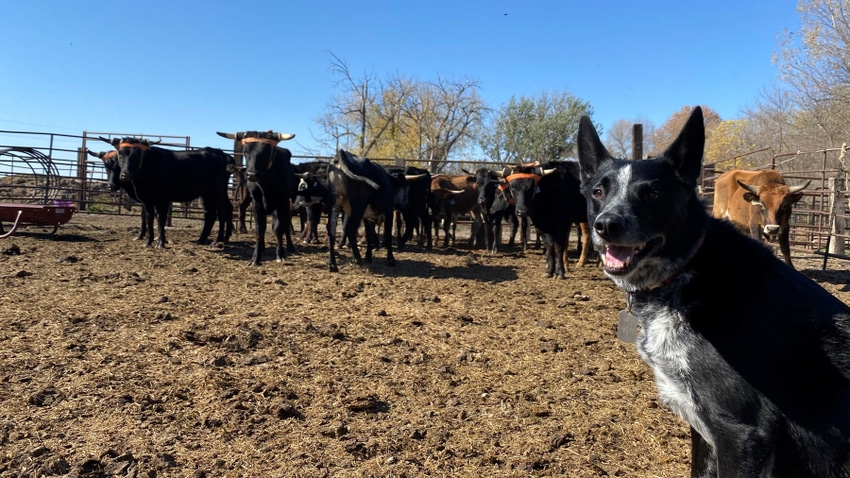
Nothing can replace a full wellness exam by a veterinarian when it comes to ensuring your farm dog is in top health. Farm dogs fill roles from herding, livestock or property protection, companionship, and maybe even as four-legged children.
While dogs, like people, should have a yearly exam, check your pet throughout the year for any changes. Merck Animal Health offers these tips for owners to give their dogs a routine health exam at home:
Spot the signs. Owners know their dog’s behavior and routine better than anyone. Being familiar with your dog can help you spot subtle signs of illness that others might miss. Signs of potential illness include:
lack of appetite
lethargy or decreased activity
vomiting or diarrhea
coughing or sneezing
discharge from the eyes or mouth
hair loss or itching
If your dog isn’t feeling itself for a day or two, it might be time for a visit to the vet.
Keep up on vaccinations. Depending on where you live, certain vaccinations are essential to your dog’s well-being. These vaccines can be either “core” or “noncore.” Core vaccines defend against diseases such as, but not limited to, distemper, parvovirus and rabies.
In certain regions or situations, vaccines to prevent Lyme disease and bordetellosis, or kennel cough, are beneficial to keep pets protected. Some vaccines may be administered on the farm after purchase through a veterinarian or certain feed store, while some are only given during a trip to the vet.
Determine which vaccinations your dog would benefit from by calling your veterinarian. When administering at home, be sure to keep the vaccination label or packaging for your records.
Protect against parasites. Your dog might be suffering from parasites, which can cause internal damage. The most common intestinal parasites are roundworms, hookworms, whipworms and tapeworms. For dogs that might enjoy sampling feces from cattle or horses, it is a good practice to have them on a regular program to protect against parasites.
External parasites that could afflict your dog are ticks, flies and fleas. Ticks cause irritation and can spread Lyme disease, anaplasmosis and babesiosis, creating serious health concerns for both dogs and humans. Mosquitos can transmit heartworm to dogs, which can be fatal if left untreated.
Keep pests from bugging your dog inside and out by giving an oral deworming medication as directed by your veterinarian, and by applying monthly preventive treatments such as flea and tick collars, or topicals.
Even with these preventive programs, inspect your dog on a regular basis to check for the signs of internal or external pests.
Practice good dental hygiene. Brushing your dog’s teeth on a regular basis will keep its teeth and gums healthy. Just like people, dogs can suffer from gingivitis, bacterial infections and tooth damage. Farm dogs more than most can be susceptible to tooth damage, as teeth can be fractured or damaged by chewing real bones, hooves, rocks or fences.
Look for teeth showing a reddish brown, purple or gray color. If a tooth is painful, your dog might resist having its mouth touched. For dogs with infected or broken teeth, a visit to the vet is a must for proper treatment.
While not everyone has the time to brush their dog’s teeth, simple tactics can keep your dog’s teeth in good condition. Dry kibble helps remove plaque, and dental chews or treats can minimize plaque growth.
Don’t forget the coat. Aside from inspecting for external parasites, your dog’s coat should be regularly maintained to prevent hair mats. Some breeds are more susceptible to matting than others.
A long-haired breed such as Great Pyrenees, German shepherd, huskie, collie, sheepdog or Australian shepherd can suffer from matted hair more frequently than a short-haired breed such as Labrador retriever or Australian cattle dog.
Matted hair can irritate skin and create an environment between the hair mat and skin that breeds bacterial infections. Regular brushing the coat can prevent mats, but if already present, the mats should be removed with electric clippers.
Farm dogs serve as our loyal companions, co-workers and protectors. They should have a complete veterinary exam once a year or as necessary for treatment. In between visits, dedicate some extra time to ensure they’re feeling their best.
Read more about:
Farm DogsAbout the Author(s)
You May Also Like






